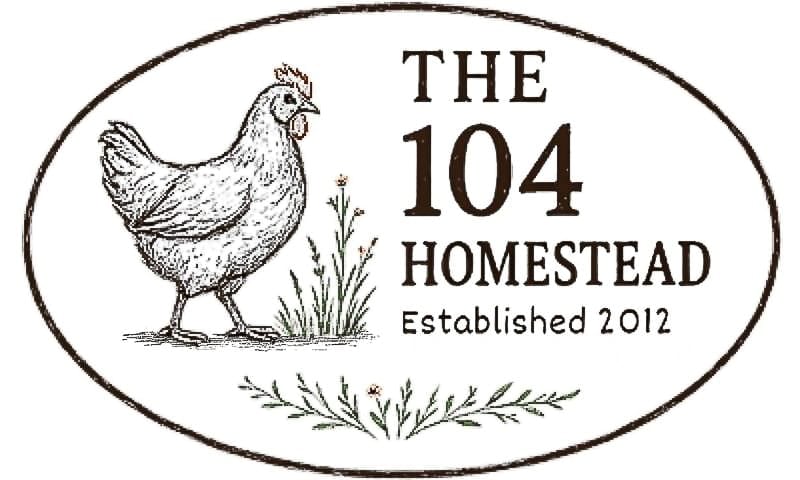The Legalities of Making Money from Your Maine Homestead
Thinking about selling eggs, produce, or homemade goods in Maine? Here’s a breakdown of what’s legal, what requires a license, and where the lines are.
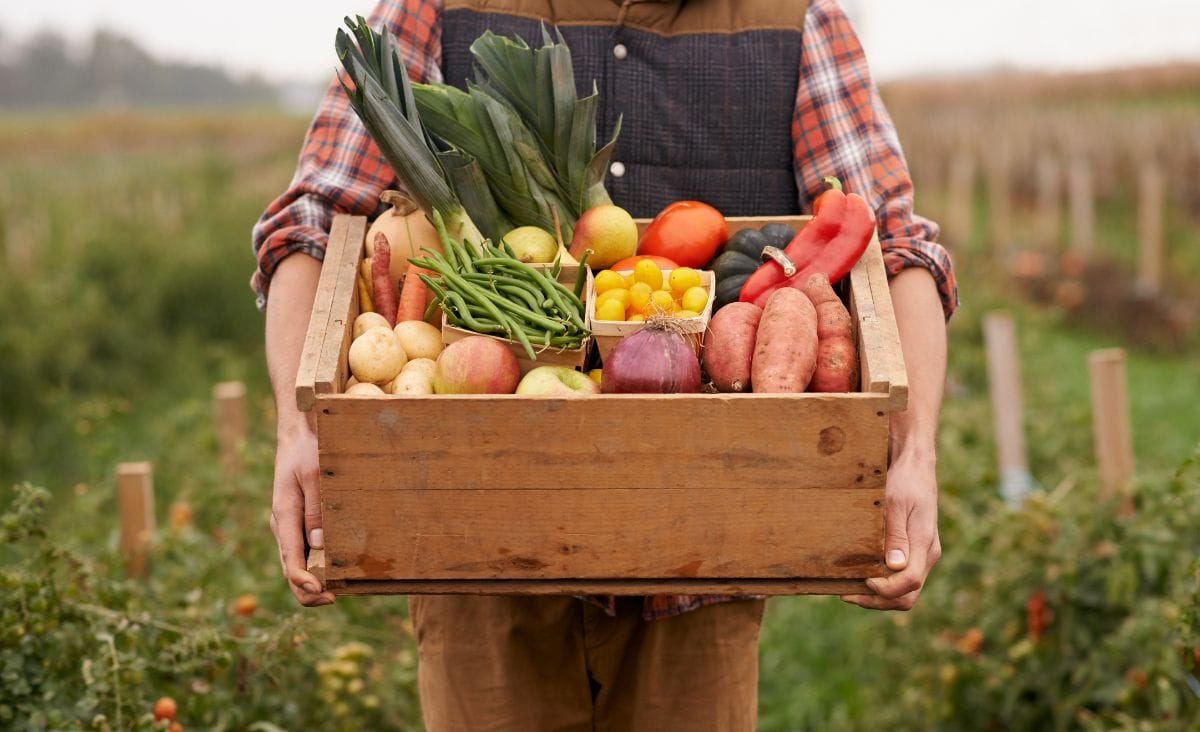
If you live in Maine, you probably know at least one person selling eggs, veggies, or something homemade right from their yard. For a lot of us, it’s not about building some massive operation. It’s about selling a few dozen eggs, extra produce from the garden, homemade goods, or whatever else we’re already doing anyway.
The hard part isn’t selling. It’s knowing what you’re allowed to sell.
Maine is more flexible than many states when it comes to selling from your homestead, but “flexible” doesn’t mean “anything goes.” The rules change depending on what you’re selling, where you’re selling it, and how it’s processed.
This post covers the rules I’ve had to sort through myself over the years. Enough to help you sell without constantly wondering if you’re crossing a line.
What You Can (and Can’t) Sell From Your Maine Homestead
Before we get into permits and licenses, it helps to zoom out. Most ways people make money from a homestead fall into three main categories:
- Selling directly from your property (farm stands or private sales)
- Selling at farmers’ markets
- Selling through local stores or restaurants
Each one has different requirements, and this is where people often get tangled up.
Food Sovereignty in Maine: What It Covers + What It Doesn’t
You’ll hear “food sovereignty” mentioned a lot in Maine homesteading circles, and for good reason. In towns that have adopted local food sovereignty ordinances, residents are allowed to buy and sell certain homemade foods directly to each other without state-level licensing.
That includes things like jams, jellies, pickles, baked goods, and other low-risk foods. It does not include meat or poultry processing, and it only applies to private, direct sales within that town. Food sovereignty doesn’t replace common sense or eliminate all rules. It moves decision-making closer to home.
If you’re not sure whether your town has adopted it, this food sovereignty municipality map is the easiest way to check. If your town hasn’t adopted food sovereignty, state rules apply instead.
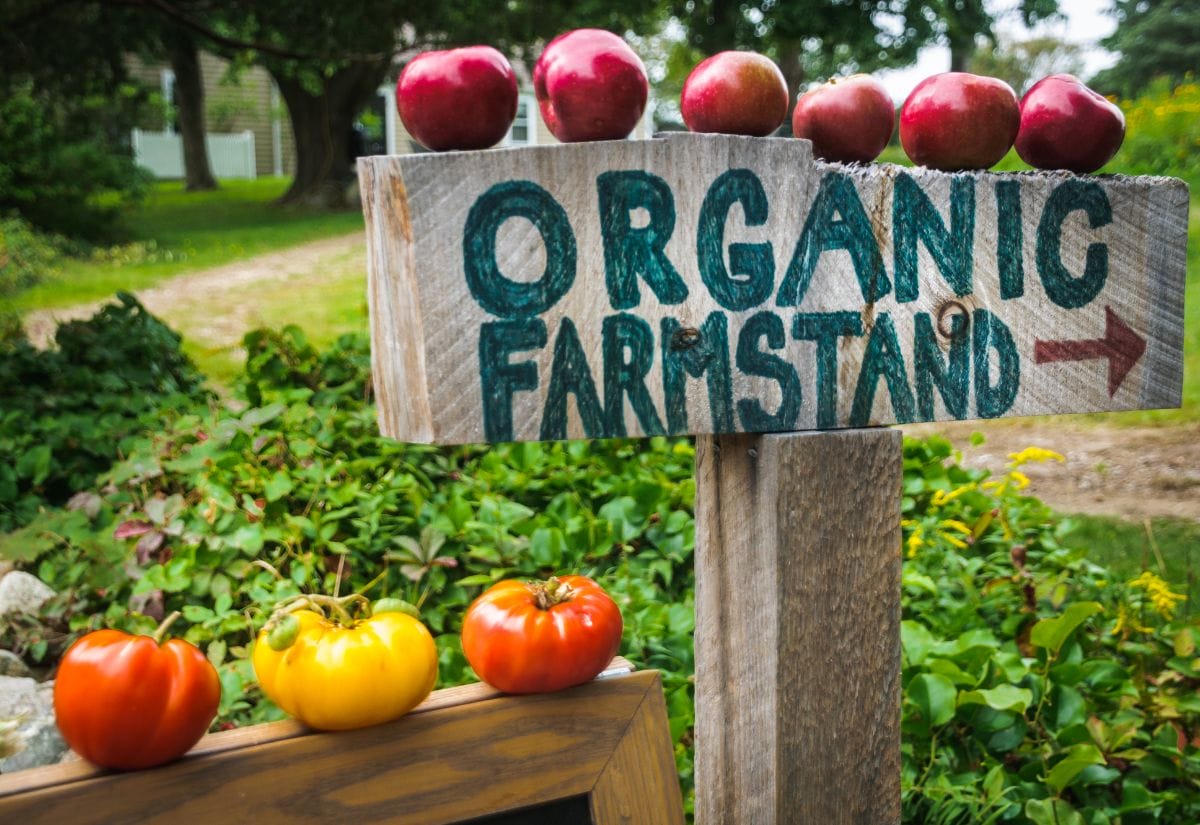
Selling From a Farmstand on Your Own Property
For a lot of homesteaders, selling from their own property is the first step. It’s lower pressure, flexible, and fits nicely around real life.
From experience, I can tell you this… a successful farmstand is about clarity and trust more than rules. Clear pricing. Clean presentation. Simple signage. Those things matter just as much as legality.
Selling Eggs and Produce From Home
You can sell eggs and produce grown on your own property in Maine without a license, as long as you follow basic handling rules.
For eggs:
- Eggs should be clean and properly stored.
- Storage temperature should stay below 45°F.
- Dating cartons isn’t required, but it’s a smart move and builds trust.
- Grading is optional, but consistency is what keeps people coming back.
For produce:
- No license is required for whole, unprocessed fruits and vegetables.
- Quality, cleanliness, and freshness matter more than anything else.
I’ve found that being upfront with customers about how things are grown and handled goes a long way. People aren’t expecting perfection. They’re expecting honesty.
Selling Homemade Foods From a Farmstand
This is where you’ll need to slow down and check the requirements. If you’re selling homemade foods like jams, baked goods, or canned items outside of a food sovereignty town, you’ll generally need a Home Food Processor License. That includes:
- A kitchen inspection
- Approved recipes and processes
- Proper labeling with ingredients and allergen information
Maine’s Home Food License 101 PDF does a solid job breaking this down in plain language. It’s doable, just not something to rush into.
Crafts and non-food items are far simpler. There’s no food safety oversight, but you’re still responsible for selling items that are safe and honestly represented.
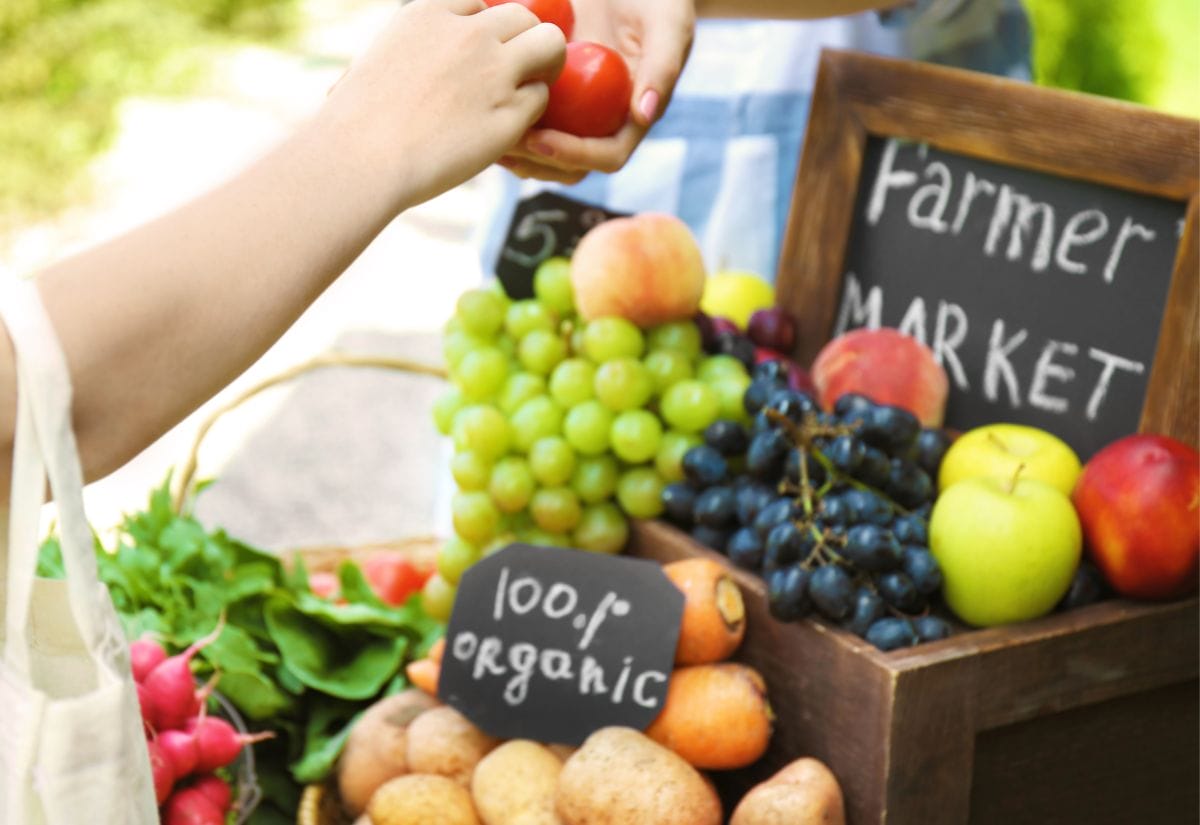
Selling at Farmers’ Markets in Maine
Farmers’ markets work very differently than selling from home. They’re lively, social, and a great way to meet customers, but they come with their own set of rules.
The Maine Food Sovereignty Act does not apply to farmers’ markets. Markets operate under state rules and their own internal regulations, regardless of whether a town has adopted food sovereignty.
What Markets Typically Require
Most markets will expect:
- Compliance with state licensing rules for food items
- An egg handler’s license only if you have more than 3,000 laying hens
- Proper labeling for homemade foods
- Liability insurance (this one’s common and non-negotiable)
Every market is a little different, so it’s always worth asking for their vendor handbook before you apply.
Selling to Local Stores or Restaurants
Selling wholesale or through retail shops is where Maine draws a firmer line.
If you plan to sell food products to:
- Local stores
- Restaurants
- Cafés
- Co-ops
You’ll need to be licensed for Home Food Manufacturing, which is more regulated than home food processing. Stores expect consistency, proper labeling, and the ability to meet demand without cutting corners. This is also where packaging and presentation really start to matter. It needs to meet requirements without looking slapped together.
From experience, relationships matter just as much as paperwork here. Store owners care about reliability and communication more than flashy branding.
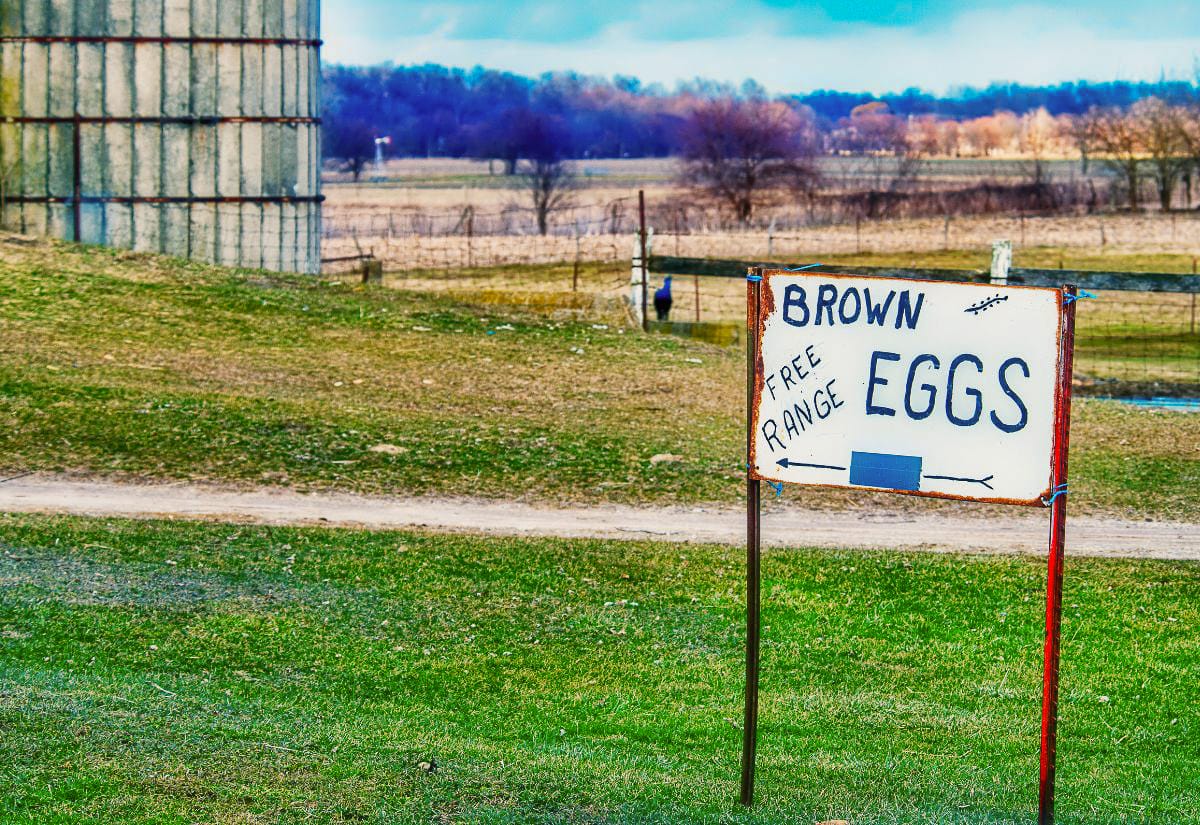
A Few Things I’ve Learned Along the Way
Most people don’t struggle because of rules. They struggle because they try to do too much too fast. Start small. Learn what sells. Figure out what you really enjoy making.
There are plenty of unusual but practical ways homesteaders bring in income that don’t require heavy licensing or big investments, and many of them grow naturally out of skills you already have. And if you’re still early in the process, setting realistic homestead goals for your first year can save you a lot of frustration. You don’t need to monetize everything right away.
If you want the bigger picture of how this can evolve over time, I’ve shared my own path from backyard ideas to a working homestead business, mistakes and all. There’s no single right way to do this.
Questions That Come Up Once You Start Selling
These are some of the most common ones that come up once people start looking seriously at selling from their homestead.
Pin this so you can come back to it when you’re ready to sell eggs, produce, or homemade goods in Maine.
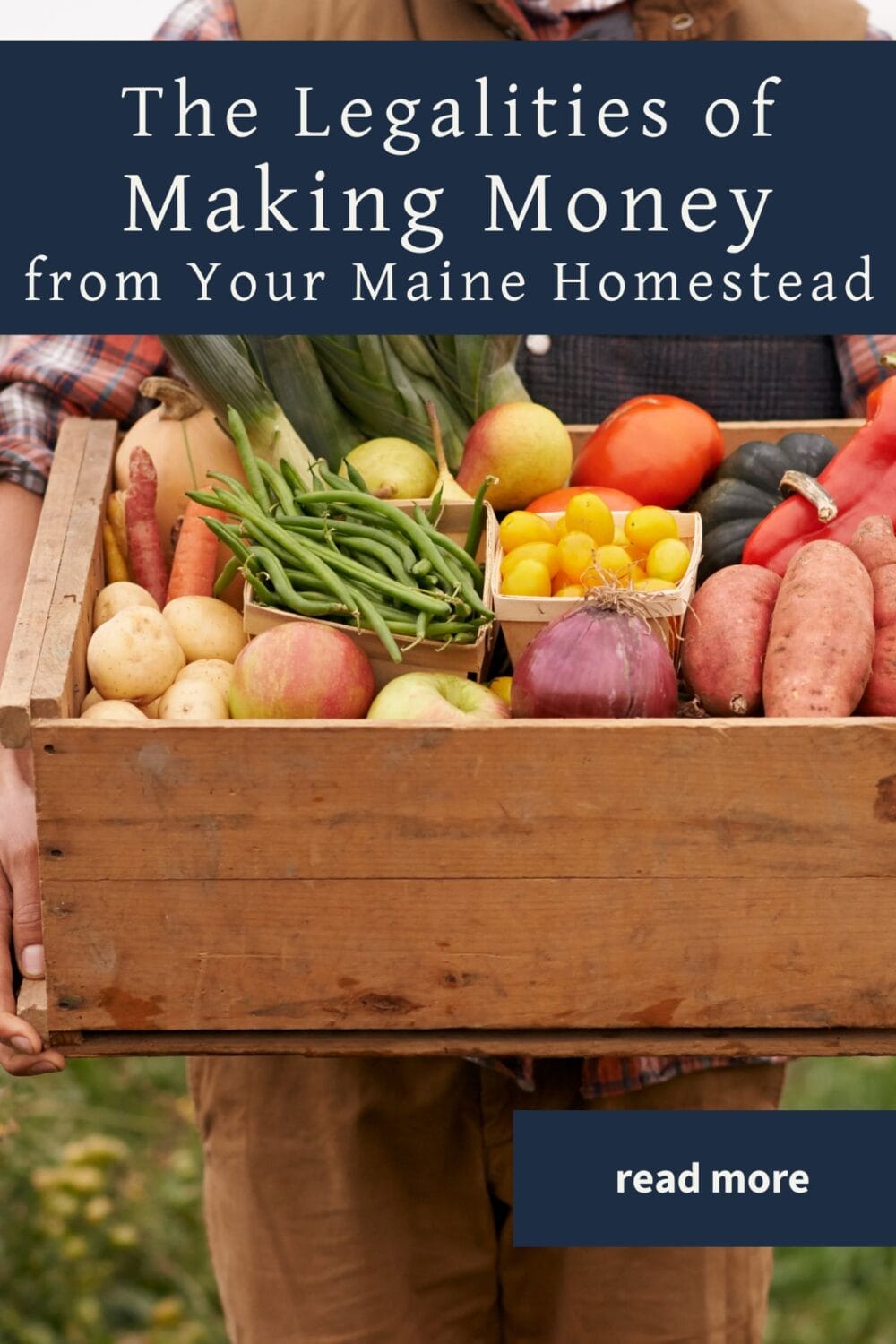
Selling from your Maine homestead doesn’t have to be overwhelming. The rules are manageable once you understand where the lines are. Start with what you already grow or make well. Learn the requirements for that one thing. Then build from there.
Do you have a farmstand or participate in markets? What do you sell?
